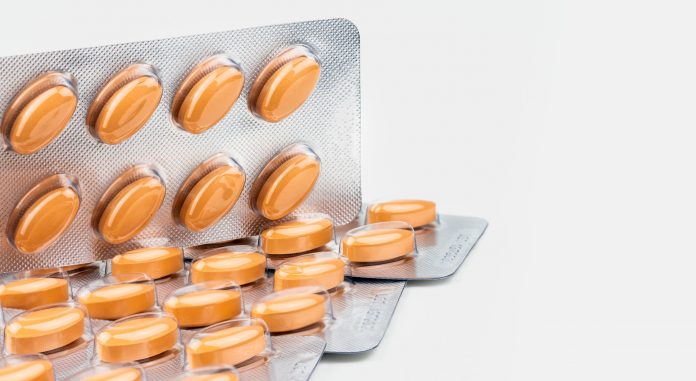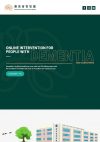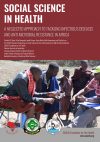Dinesen L1, 2, Poots AJ1, Bell D1, 2. 1.NIHR CLAHRC NW London, Imperial College London 2.Dept. Acute Medicine, Chelsea and Westminster Hospital
What is Acute Medicine?
Acute medicine is the part of internal medicine concerned with the immediate and early specialist management of adult patients who present to, or from within, hospitals as urgencies or emergencies and traditionally this include the first 72 hours of care in a well-staffed and equipped Acute Medical Unit. As such, acute medicine and acute physicians manage a large number of patients per day with complex health needs across a broad range of illness severity.
Acute medicine has a growing academic base but research in acute care needs to increase and accelerate for two main reasons. The first is to ensure we design adaptive systems for health care delivery in an increasingly complex environment related to the increasing demand and advances in technological intervention and diagnostics. The second is to better understand and treat patients with complex needs who are increasingly exposed to a cocktail of medicines which can have interactions, some with significant harm 1. Acute medicine has developed over the past 10 years owing to a complex interplay of factors; it is now established in several European countries and is developing in Singapore and Malaysia. As the demand for acute physicians grows it is imperative that we provide increased research opportunities for clinicians and non-clinicians, to ensure best medical practice. This means that major grant funders need to recognise the patient need for research in this area and pump prime grants and new academic posts. Translational research 2 is recognised as an essential area for research and with Acute Medicine’ acting as the front gate for secondary care, its main role is likely to be in closing any second translation gap between primary research and practice, thereby ensuring that patients receive consistent, high quality, patient-centred care.
Research opportunities in Acute Medicine
The research opportunities span a broad range: from managing a single disease entity such as venous thromboembolism and stress hyperglycaemia to complex needs patients and polypharmacy, evaluation of illness severity assessment scores (including NEWS), technological interventions such as non-invasive ventilator support through to the design of health care systems. Some examples of recent research and future research opportunities are described in the next section.
Frailty in the context of Acute Medicine
Frailty is usually seen as a condition of ageing with two main models commonly used to describe frailty in the context of research: namely the phenotype and the cumulative deficit models 3, 4.These models, while valuable, are probably too simplistic in the context of acute illness. While an acute presentation will usually be driven by a physical illness and the associated pathophysiological decompensation there is a complex interplay between the patients environment, social and psychological wellbeing. This may be seen as obvious in many cases, but assessing and measuring this to facilitate better clinical decision making and going support is not routine in clinical practice. To this end our research programme has recently published on the role of large data in defining outcomes for complex needs elderly patients in acute care based on the use of ‘geriatric syndromes’ 5, 6 and this work is now informing the basis of a four domain simple clinical frailty score that can be calculated at point of entry to care and longitudinally.
This score will use the four domains described above and the aim is to validate this work across a range of clinical environments, conditions such as brain injury, and age groups above 16 years old. This study is on-going, funded through the National Institute of Health Research (NIHR) Collaboration for Leadership in Applied Health Research and Care North West London (CLAHRC NWL); but collaboratively across international centres would allow this work to be developed more effectively and help to minimise the translational gap that exists in this area.
CLAHRC NWL and patient leaders co-developed My Medication Passport, a hugely successful project. My Medication Passport is a written record, either in paper or smartphone app, of a person’s medication, designed to improve communication between healthcare professionals and patients, and to provide a record for the patient themselves to be in charge of their medication and any changes made to their medication 7. Also CLAHRC NWL is involved in de-prescribing and optimising medication review.
Acute Medicine and System design
Acute Medicine’s ability, in common with emergency medicine and intensive care, to deliver high quality and efficient care is influenced by the patient and staff environment. Yet relatively little research has been conducted in this area, whether at the level of building design or the optimal use of information technology. It could be argued that in hospital and departmental design we reproduce the mistakes of the past; for instance having large distance between Emergency Departments, and acute medical units slows patient flow. Equally, in relation to information technology, we use what is provided rather than as an enabler to facilitate high quality care; for example, differing IT systems between specialties hinders transfers of knowledge across transfers of care. To resolve this Medicine needs to move beyond the current research paradigms to work more closely with developing information technology and social media, and to look beyond traditional medical research (for instance collaborating with engineering, design, art, and other social sciences) to design responsive and adaptive health care systems, organisations and departments. High volume specialties, such as Acute Medicine, and patients will benefit most by embracing a varied epistemological approach, drawing on differing knowledge bases to provide innovative solutions. Preliminary work with the Royal College of Art and Imperial College London has suggested four design features for Acute Medical care:
– Visibility of information and the clinical (patient) areas
– Sharing of information between and across professional groups
– Empowerment of patients and staff in decision making
– Follow up of outcomes
Building on this will require a rethink of information and information systems to create a reliable and systematic view of care needs in real time, and a new approach to building and environmental design. Collaboration across different health care systems would provide enhancements to this work, providing greater generalisability of output.
Summary
The potential for academic medicine to develop in acute medicine is significant and will require new thinking that recognises the needs of the large cohort of patients who are admitted to hospitals around the world 24 hours per day seven days per week. Costs are related to patient needs and for most hospitals this reflects a large proportion of the budget. To improve care and efficiency requires research funders and industry to recognise the importance of acute care and to invest in the future for this vulnerable and complex patient group. Collaboration across disciplines and nations will provide innovative and generalizable knowledge for these improvements; and, coupled with the varied patient cohort, this provides many research opportunities and rewarding field in which to work.
References
1 Duerden M et al. Polypharmacy and medicines optimisation. Making it safe and sound. The Kings Fund. Nov 2013
2 Cooksey D. A review of UK health research funding. Dec 2006
3 Fried LP et al. Frailty in older adults: evidence for a phenotype. J Gerontol A Biol Sci Med Sci 2001; 56: M146–56.
4 Rockwood K et al. A global clinical measure of fitness and frailty in elderly people. CMA J, 2005, 173,(5), 489-95
5 Soong J et al. Quantifying the prevalence of frailty in English hospitals. BMJ Open 2015;5:e008456
6 Soong J et al. Developing and validating a risk prediction model for acute care based on frailty syndromes. BMJ Open 2015;5:e 008457
7 Barber S et al. Evaluation of My medication Passport: a patient completed aide-memoire designed by patients, for patients, to help towards medicines optimisation. BMJ Open 2014;4:e005608
Professor Derek Bell
Imperial College London
Tel: 020 3315 5845

























